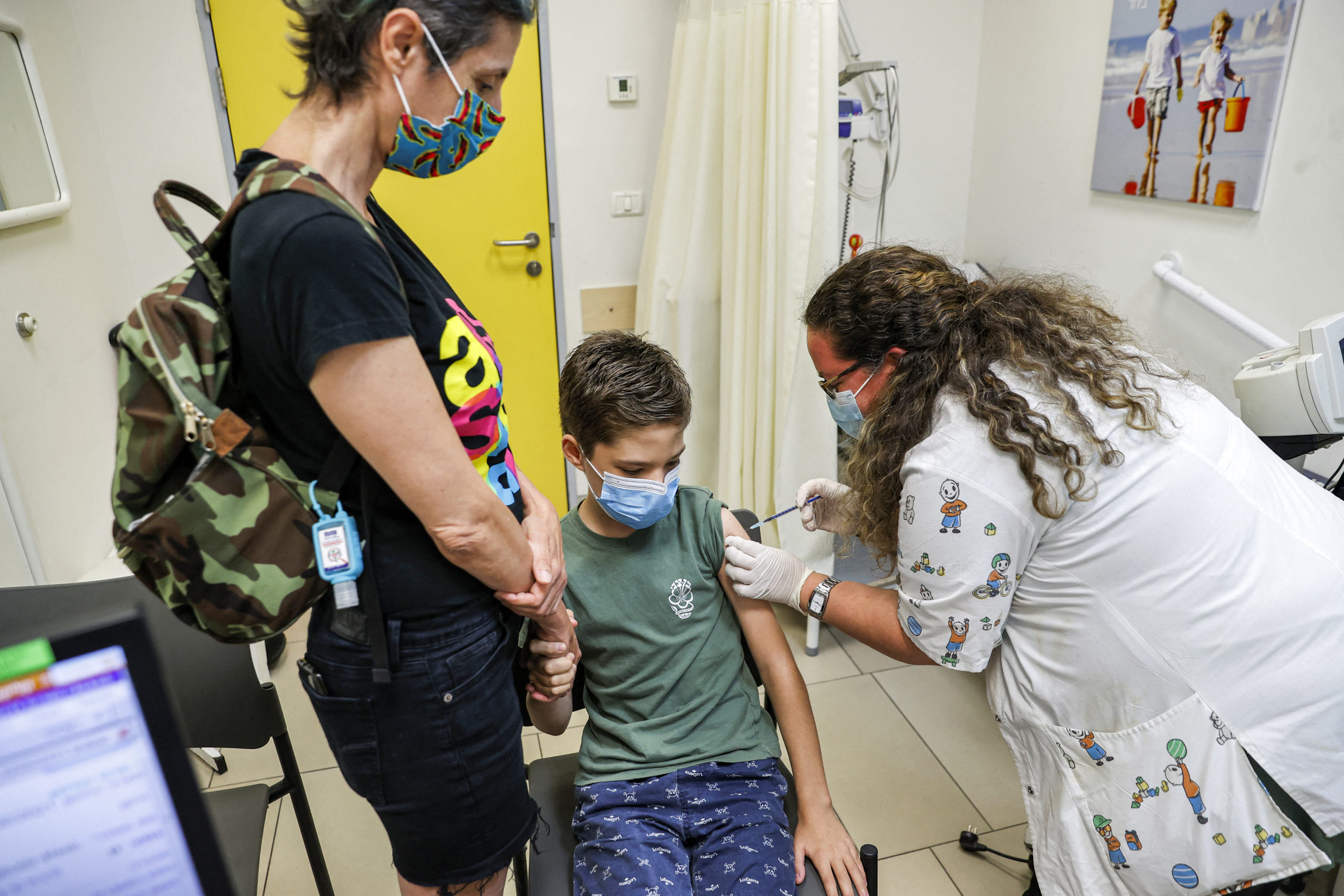
A boy receives a dose of the Pfizer/BioNTech Covid-19 vaccine at the Clalit Healthcare Services in the Israeli city of Holon near Tel Aviv on June 21, 2021, as Israel begins coronavirus vaccination campaign for 12 to 15-year-olds. – Israel is now urging more 12- to 15-year-olds to be vaccinated, citing new outbreaks attributed to the more infectious Delta variant. (Photo by JACK GUEZ / AFP)
TEL AVIV — The Israeli health ministry reimposed a requirement Friday for masks to be worn in enclosed public places following a surge in COVID-19 cases since it was dropped 10 days ago.
The spike in new infections is a blow for a country that has prided itself on one of the world’s most successful vaccine rollouts.
The head of Israel’s pandemic response task force, Nachman Ash, told public radio the requirement came after four days of more than 100 new cases a day, with 227 cases confirmed Thursday.
“We are seeing a doubling every few days,” Ash said. “Another thing that’s worrying is that the infections are spreading. If we had two cities where most of the infections were, we have more cities where the numbers are rising and communities where the cases are going up.”
Ash said the rise in cases was likely due to the highly contagious Delta variant first seen in India.
Reimposing the mask requirement is a setback for Israel, coming so soon after it was lifted on June 15 on the back of a successful vaccination campaign.
Some 5.2 million people have received both doses of the Pfizer-BioNTech vaccine after Israel obtained millions of doses.
Ash said despite the increased number of positive cases, he did not yet see a parallel rise in hospitalizations or deaths.
“It’s clear it’s a factor of time, that not enough time has passed,” Ash said. “But we hope the vaccines will protect us from a rise in hospitalization and difficult cases.”
The health ministry urged Israelis to wear masks in crowded outdoor spaces too, including at pride events scheduled for this weekend.
A pride march scheduled for Friday afternoon in Tel Aviv is expected to draw tens of thousands of people. The event is resuming after it was suspended last year due to the virus.
On Wednesday, Israel already delayed plans to allow the renewed entry of individual tourists and said it could take other steps to counter the spread of the Delta variant.
Prime Minister Naftali Bennett warned Tuesday of a “new outbreak” of coronavirus in Israel after a rise in infections he said was likely due to returning travelers carrying the variant.